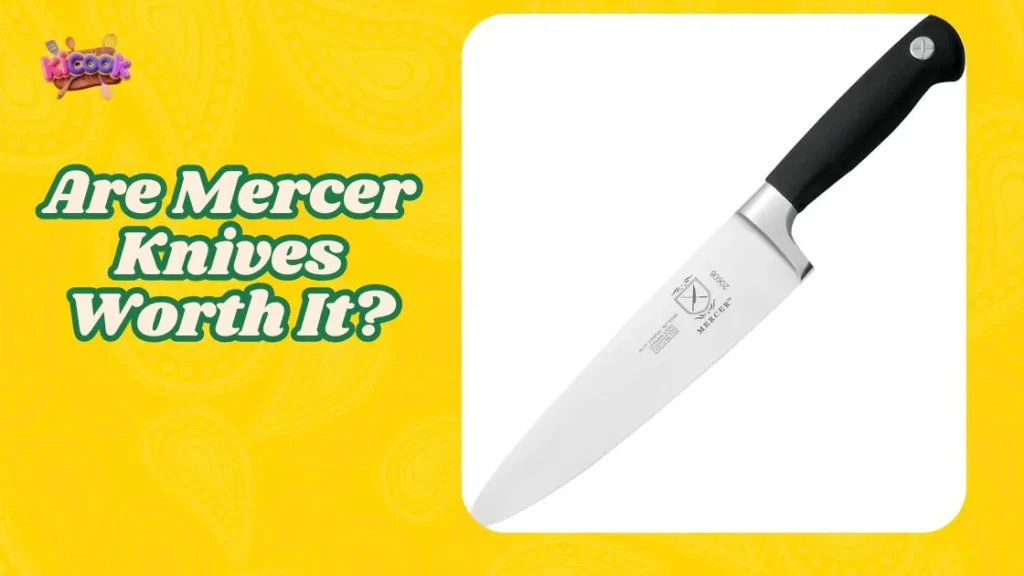Are Mercer knives good? As someone who spends a lot of time in the kitchen, I’ve tried my fair share of knives. From high-end brands to budget-friendly options, I’ve seen it all. But Mercer knives?
They’ve genuinely impressed me. Sharp, reliable, and comfortable to use, they’ve become a staple in my kitchen. Whether you’re a home cook or a professional, Mercer knives can make a noticeable difference in your cooking experience. Let me walk you through why I think they’re worth considering.
Tried and Tested: Are Mercer Knives Worth It?
When I first started taking cooking seriously, I quickly realized that having the right tools can make or break your experience. A good knife isn’t just a tool—it’s an extension of your hand. Mercer knives came highly recommended by a friend who’s a culinary instructor, so I decided to give them a try. Fast forward to today, and they’ve become my go-to knives for almost every task.
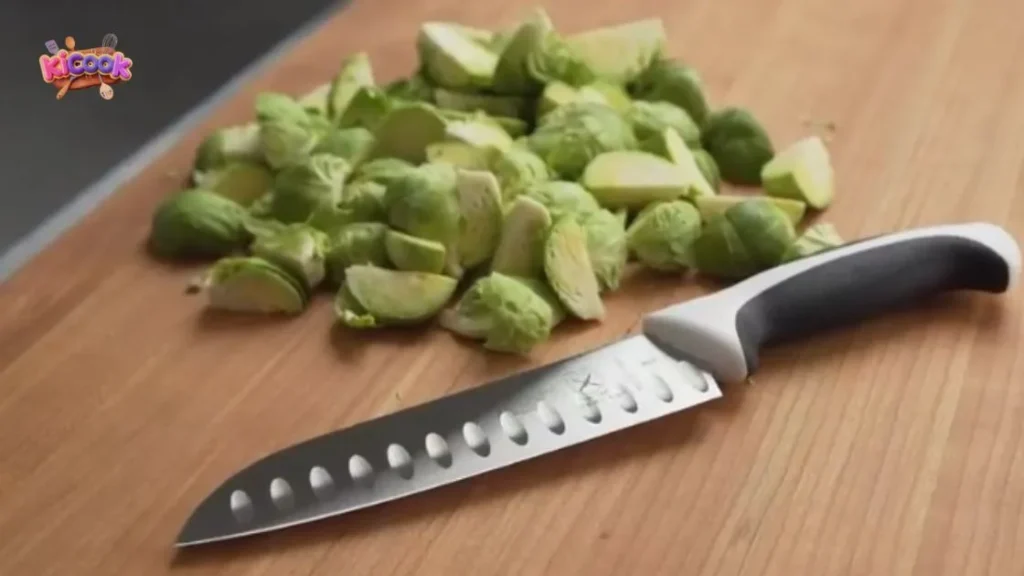
What makes Mercer knives stand out? For starters, they’re incredibly sharp right out of the box. I’ve used knives that required immediate sharpening, but not Mercer. They’re also durable, comfortable to hold, and versatile enough to handle a wide range of tasks. Whether I’m chopping vegetables, slicing meat, or mincing herbs, these knives have never let me down.
Materials and Build
Blade Material
Mercer knives are crafted from high-carbon stainless steel, which is a game-changer. This material ensures the blades are strong, rust-resistant, and capable of holding their edge even after heavy use. I’ve used my Mercer chef’s knife to chop everything from onions to tough root vegetables, and it still feels as sharp as the day I bought it.
Blade Structure
Most Mercer knives are forged, meaning they’re crafted from a single piece of steel. This gives them a solid, well-balanced feel that’s perfect for precision tasks. I’ve noticed that forged knives tend to last longer and perform better than stamped ones, and Mercer is no exception.
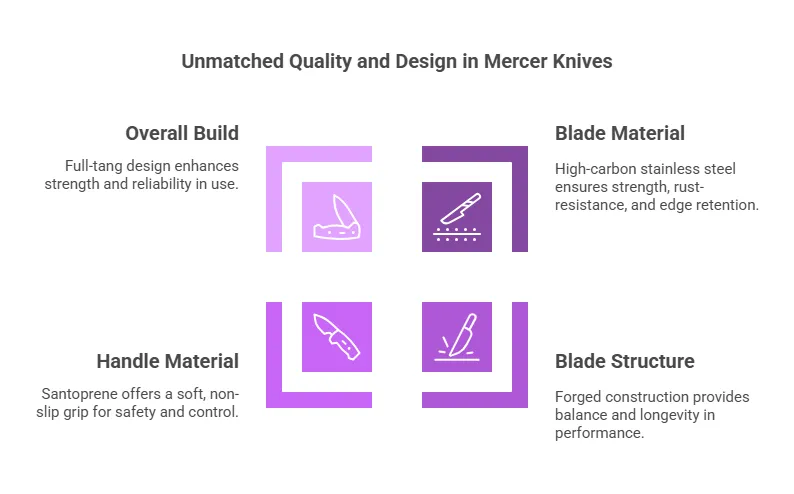
Handle Material
The handles are made from either Santoprene or polypropylene. I personally prefer the Santoprene handles because they offer a soft, non-slip grip. Even when my hands are wet, I’ve never felt like I was losing control of the knife. This is a huge plus for safety, especially during long cooking sessions.
Overall Build
One of the standout features of Mercer knives is their full-tang design. This means the blade extends all the way through the handle, adding extra strength and balance. Whether I’m dicing carrots or slicing through a tough squash, the knife feels sturdy and reliable.
Design Features
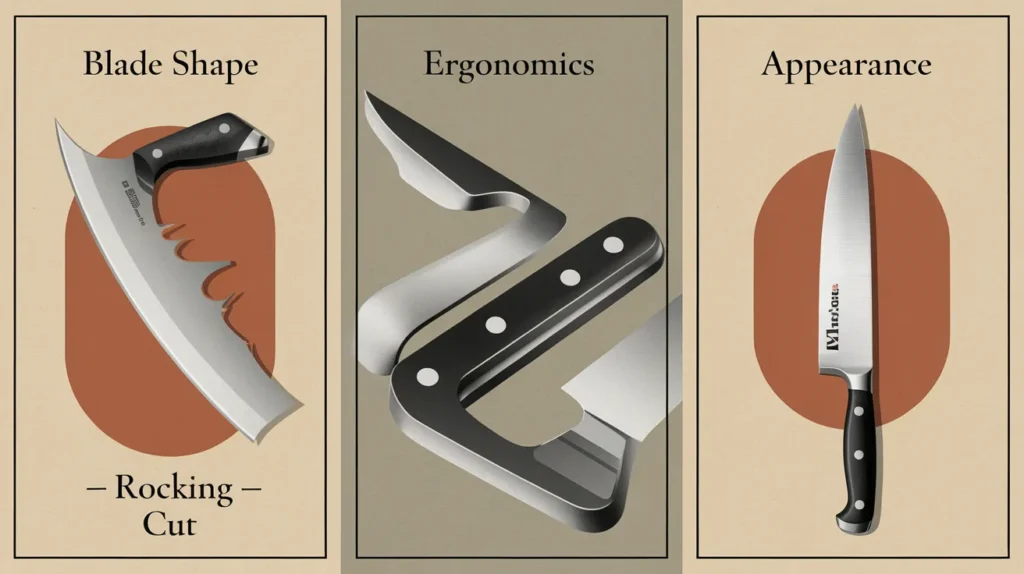
Blade Shape
Mercer offers a variety of blade shapes, including chef’s knives, santoku knives, and paring knives. My favorite is the chef’s knife, which has a curved edge that makes rocking cuts a breeze. It’s versatile enough to handle almost any task, from slicing meat to chopping vegetables.
Ergonomics
The ergonomic design of Mercer knives is another big win. The handle fits comfortably in my hand, even during extended use. I’ve used other knives that left my hand sore after just 30 minutes, but Mercer’s design keeps me comfortable no matter how long I’m in the kitchen.
Appearance
While Mercer knives aren’t flashy, they have a sleek, minimalist look that I appreciate. They don’t have intricate patterns or designs, but their clean, professional style fits well in any kitchen.
Performance
Sharpness
Mercer knives are razor-sharp right out of the box. I remember the first time I used my Mercer chef’s knife to slice a tomato—it glided through effortlessly, leaving clean, even slices. This level of sharpness makes meal prep faster and more enjoyable.
Edge Retention
One of the things I love most about Mercer knives is how well they hold their edge. I use my knives almost daily, and they stay sharp for months with minimal maintenance. I only need to sharpen them occasionally, which is a huge time-saver.
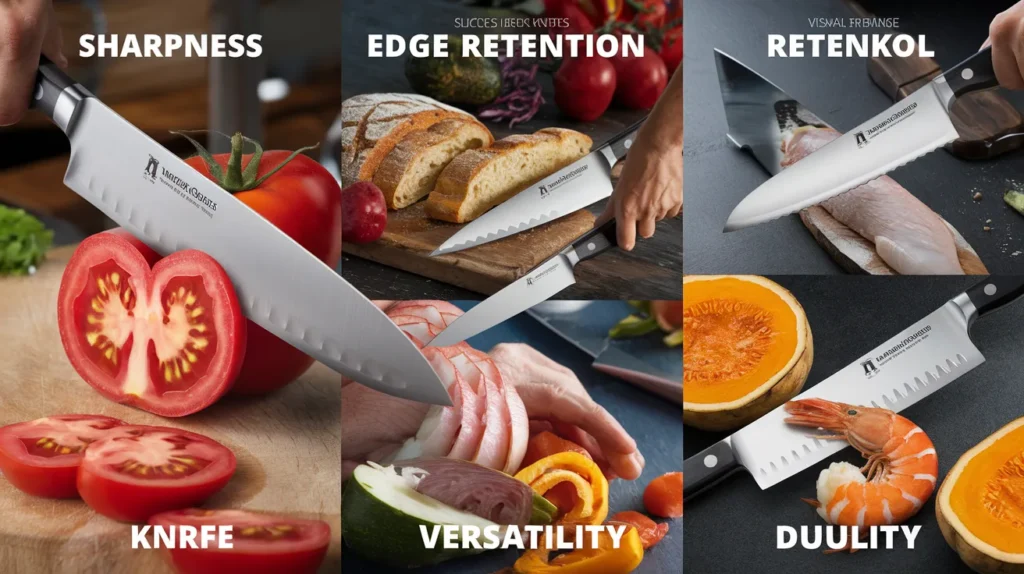
Versatility
These knives are incredibly versatile. The chef’s knife is my go-to for most tasks, but I also love the santoku knife for smaller, more precise jobs. Whether I’m slicing bread, chopping vegetables, or deboning a chicken, Mercer knives handle it all with ease.
Precision
The balance and sharpness of Mercer knives make precision tasks a breeze. Mincing garlic, peeling fruit, or slicing thin strips of meat feels effortless. I’ve even used my Mercer paring knife to devein shrimp, and it worked like a charm.
Durability
Mercer knives are built to last. I’ve put them through some tough tasks, like cutting through butternut squash and frozen foods, and they’ve held up beautifully. The blades haven’t chipped or dulled significantly, which is a testament to their quality.
Drawbacks
Maintenance
The high-carbon steel used in Mercer knives can stain if not properly cared for. I’ve learned to dry my knives immediately after washing to prevent any discoloration.
Comfort
While I find the handles comfortable, they might feel a bit bulky for people with smaller hands. If you have petite hands, this is something to keep in mind.
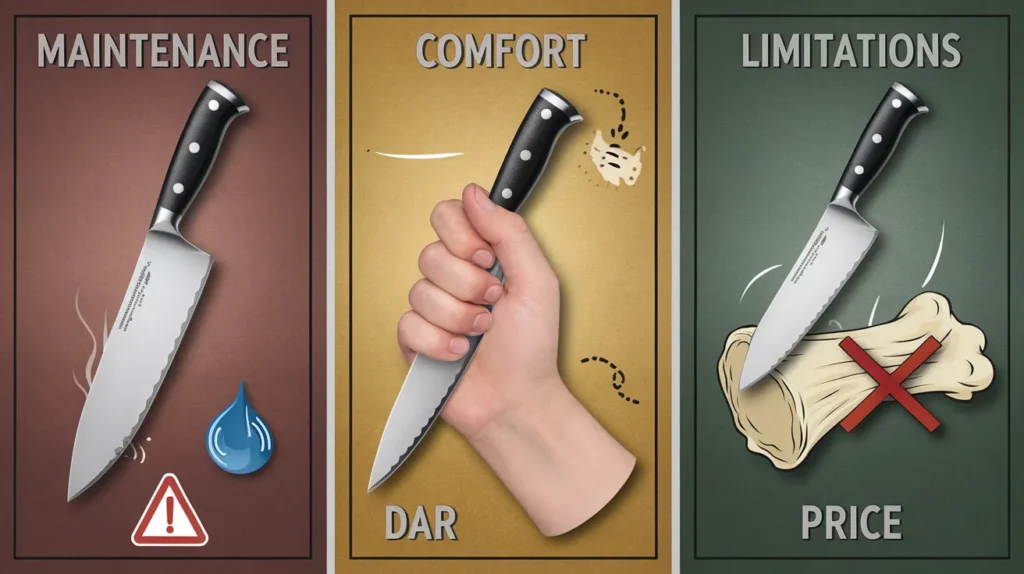
Limitations
Mercer knives aren’t designed for heavy-duty tasks like cutting through bones. For those jobs, you’ll need a specialized knife.
Price
Mercer knives are affordable, but they’re not the cheapest option on the market. That said, I think they offer excellent value for the price.
Mercer Knives vs. Competitors
Mercer vs. Wusthof
Wusthof knives are often seen as the gold standard in the knife world, and for good reason. They’re incredibly sharp, durable, and have a premium feel. However, they’re also significantly more expensive than Mercer knives.
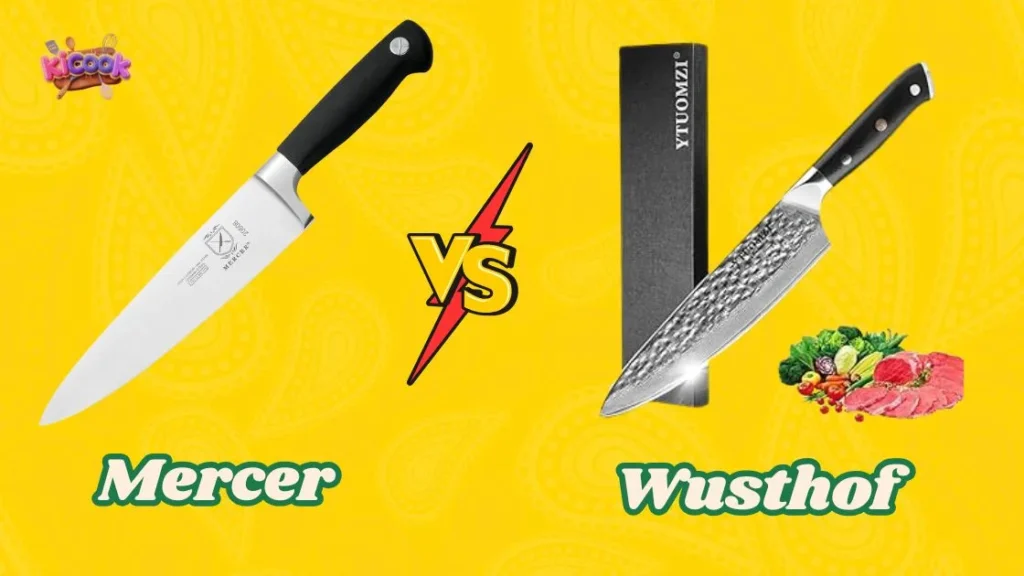
In my experience, Mercer knives are a great option for home cooks who want quality without breaking the bank. Wusthof, on the other hand, is better suited for professionals or serious enthusiasts who are willing to invest in top-tier tools.
Mercer vs. Henckels
Henckels is another popular brand that offers a mix of traditional and modern knives. While Henckels knives have a classic, timeless design, I find Mercer knives to be more practical and lightweight.
Final Thoughts
Mercer knives are a fantastic choice for anyone looking for reliable, high-performing knives at an affordable price. They’re sharp, durable, and comfortable to use, making them a great option for both home cooks and culinary students.
As the famous chef Julia Child once said, “A good knife is the most important tool in the kitchen.” And in my opinion, Mercer knives live up to that standard.
If you’re considering upgrading your kitchen tools, I highly recommend giving Mercer a try. They might just become your new favorite knives.
FAQs About Mercer Knives
What makes Mercer knives unique?
Mercer knives are known for their affordability and high performance. They use durable materials like high-carbon stainless steel and have ergonomic handles for comfort and control.
Are Mercer knives worth buying for home chefs?
Absolutely. Mercer knives are sharp, easy to use, and make meal prep faster. Plus, they’re budget-friendly.
Where are Mercer knives made?
Mercer knives are made in Taiwan with high-quality materials and strict manufacturing standards.
What materials are used in Mercer knives?
Mercer knives feature high-carbon stainless steel blades for sharpness and rust resistance, with handles made from Santoprene or polypropylene for a durable, non-slip grip.
Who should buy Mercer knives?
Mercer knives are great for culinary students, home cooks, and anyone needing reliable, budget-friendly knives for everyday cooking.
In the end, Mercer knives have earned their place in my kitchen. They’re not just tools—they’re partners in creating delicious meals. As Anthony Bourdain once said, “Skills can be taught. Character you either have or you don’t have.” And Mercer knives? They’ve got both skill and character in spades.

